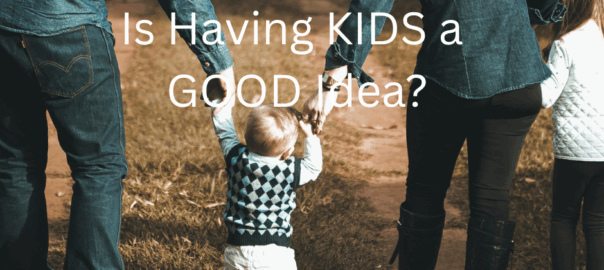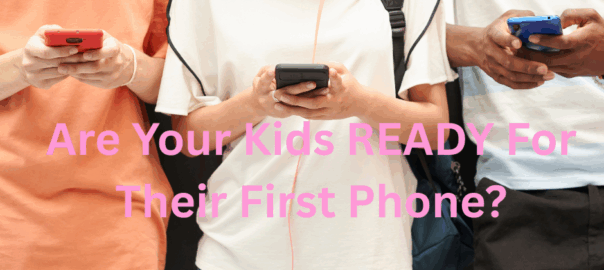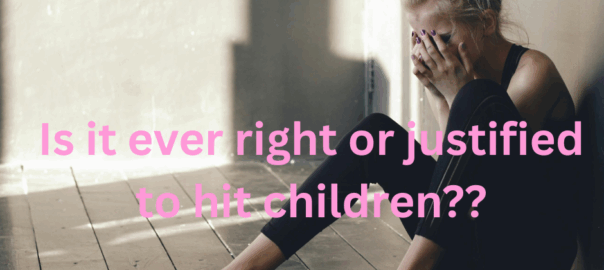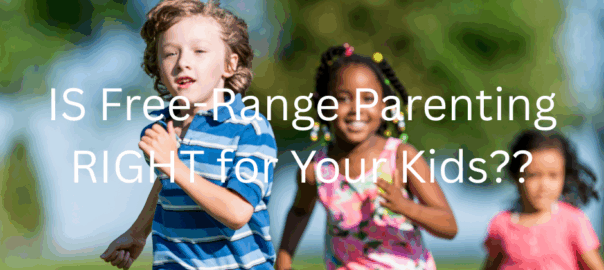Is it ever right to use violence and hit children? If this is a question you’ve asked yourself then keep reading.
On recent edition of a prominent US chat show the host advocated parents to “spank your kid’s a**” instead of being letting children go “crazy”. This was in relation to a news article on gentle parenting.
The question was in relation to a a video where a small child repeatedly smacked he mother in the face. The mother was practicing gentle parenting and was calmly asking her daughter ‘please don’t hit me’.
The assertion being that smacking would stop the child’s behaviour and the host referred more generally to unacceptable behaviour in shops etc, citing his own up upbringing where this type of behaviour would not have tolerated by his family.
So this raises the question. Is it ever OK to hit children and use violence to stop and correct(?) behaviour? Is there a time and place for a smack to stop or correct behavior? We use various phrases, smack, spank but its the same thing, to hit children, to use violence against children.
What is the UK law on people who hit children?
This information is correct as at 31 7 2025 as provided by The law on smacking children – childlawadvice.org.uk
When you hit and use violence against children, what does it do to a Child’s Brain
As parents, we’d move mountains for our kids. We love them like crazy. And yet, somehow, they have a supernatural ability to push every single one of our buttons, driving us to a point where we might do something we regret… like spank them.
Do parents actually plan to hit kids and use violence or is it an emotional reaction to a situation?
The answer maybe in our upbringing, For previous generation the idea of being able to use violence, to ‘spank my kid’ was more widespread and accepted. Generally is was more acceptable to hit kids. ‘A clip round the ear never did any harm’. This leads us as parents to think “I turned out fine.” But what if that one smack does more than just sting for a minute? What if it actually sets off a chain reaction in a child’s brain, with effects that can ripple out for a lifetime? We’re going to look at what the science really says about using violence, using spanking and, more importantly, explore what we can do instead to raise kids who are both cooperative and incredibly resilient. If we hit kids their are consequences.
The Problem – A Giant’s Hand
From our grown-up point of view, a smack can seem like a minor, in-the-moment correction. But we have to try, just for a second, to see it through the child’s eyes. To a small child, a parent is everything. They’re your source of safety, your protector, your entire universe. And physically, let’s be honest, we’re giants. To hits kids conveys a message to that child. I as a parent think its OK to communicate by force and use violence.
So when that giant—that source of all safety and love—intentionally causes pain, the child’s world gets flipped upside down. The message they get isn’t really about hitting their sibling.
The message is that the one person who is supposed to protect them is also, sometimes, a threat.
So the simple notion its OK to spank my kid from an adult perspective, triggers far greater emotions and reactions in the child.
This isn’t about shaming parents. It’s about understanding this huge difference in perception. What we see as a quick course correction, a child’s brain registers as a danger signal. And as we’re about to see, that signal triggers a whole series of alarms in their developing mind, changing how they see the world and even how their brain physically gets wired. Decades of research have consistently shown that physical punishment violence is linked to harm to a child’s social, emotional, and cognitive development.
The Science – A Brain on High Alert
So, what’s actually going on in their head when they get smacked? Thanks to neuroimaging, we don’t have to guess anymore. Groundbreaking research, a lot of it from scientists at Harvard, has given us a window right into the brain’s real-time response.
So is the idea, its OK to spank my kid, without serious consequences really true? Is it ever ok to hits kids?
In one major study, researchers used MRI scans to watch kids’ brains. They showed the children pictures of faces with either neutral or fearful expressions. What they found was pretty shocking. When they saw the fearful faces, the kids who had been spanked showed way more brain activity in multiple areas of their prefrontal cortex. This is the part of the brain that’s constantly scanning the environment for threats. Essentially, their brains were on high alert, working overtime to find danger.
And here’s the kicker: the brain activity of the spanked children looked exactly like the brain activity of children who had suffered what anyone would call severe abuse. Let that sink in for a moment. On a neurological level, the brain doesn’t seem to draw a big line between a smack and other forms of violence. It just recognizes a threat from a caregiver and starts rewiring itself to survive.
This constant “threat-detection” mode is a result of the brain’s stress response system getting triggered over and over. When a child is hit, their brain is flooded with stress hormones like cortisol. This is the body’s natural alarm, and it’s great for escaping real danger, like a tiger. But when that alarm is constantly being pulled, it becomes toxic to the developing brain. It can even lead to less gray matter in the prefrontal cortex—the very part of the brain in charge of self-control, decision-making, and regulating emotions.
Other studies have found that physical punishment is linked to adolescents being extra sensitive to their own mistakes and less responsive to positive things in their life. This state of constant alert, this neurological vigilance, doesn’t just stay in the brain. It spills out into a child’s daily life, with some serious and lasting consequences.
So is the idea, its OK to spank my kid, without serious consequences isn’t true. There are consequences in following the belief that its OK to spank my kid but are there other consequences as well?
The changes in the brain that scientists are seeing aren’t just lab results; they show up in a child’s life in very real ways.
First, the risk for mental health challenges goes way up. Children who are physically punished are more likely to struggle with anxiety, depression, behavioral problems, and substance use disorders down the road. Their brains, basically trained to see threats everywhere, can create a constant, humming background of anxiety. A 2021 study found that kids smacked at age three were more likely to have poor mental health and more difficult behaviors all the way up to age 14.
Second, it can actually make kids more aggressive. It seems backward, right? Parents who spank are usually trying to stop aggression. But kids are always watching us. Social learning theory tells us they learn how to solve problems by seeing how we solve problems. When we use our size and power to get what we want, we’re modeling that aggression works. A massive review of studies involving over 160,000 kids confirmed it: physical punishment is linked with more aggression and antisocial behavior, not less. So when we hits kids it shows kids its ok to hit.
Third, it damages the single most important parenting tool we have: our relationship. Great parenting is built on a foundation of warmth and trust. Physical punishment chips away at that foundation and replaces it with fear. A child who’s afraid of being hit is not going to come to you for advice or to confess they messed up. That parent-child bond gets weaker, which just makes every other part of parenting harder.
And finally, it just doesn’t work to teach the right lesson. A smack might stop a behavior for a minute, but it doesn’t help a child understand why it was wrong. The child’s focus immediately shifts from “what I did” to “the pain I feel” and “my parent is scary.” It teaches them how to not get caught, not how to be a good person. Real discipline—which comes from a word that means “to teach”—is about guiding our kids to develop self-control. Physical punishment just isn’t built for that job.
There are still arguments to hit kids.
The “But I Turned Out Fine” Argument
Okay, so right about now, a lot of people are thinking, “But I was spanked, and I turned out fine.” This is probably the number one defense of spanking, and it’s a powerful one, so it’s worth talking about directly.
First off, people are incredibly resilient. We can and do overcome all sorts of difficult childhood experiences to become happy, successful adults. No one is saying that every single child who is spanked is doomed.
But let’s gently unpack the “I turned out fine” idea. For one thing, it’s totally subjective. We don’t have a control-version of ourselves to compare to. How do we know how we might have turned out if things were different? Is it possible we could have been even better than fine? Maybe a little less anxious, a little more confident, with a greater capacity for joy? We can’t ever know the road not taken.
More importantly, the mountain of research is clear: while you may have turned out fine, physical punishment dramatically increases the risk of negative outcomes. It’s like saying your grandpa smoked a pack a day and lived to be 90, so smoking isn’t dangerous. We all know that’s not true. We know smoking massively increases the risk of cancer and heart disease, even if not every smoker gets sick. In the exact same way, the evidence is overwhelming that smacking increases the risk of aggression, mental health problems, and struggles with learning.
Knowing these risks, the question isn’t, “Will spanking absolutely ruin my child?” The real question is, “Why would I take that risk at all, when there are better, more effective alternatives that build my child up and have no risks attached?”
An alternative way of looking at it is does the belief, its OK to spank my kid, mean you miss out on creating a better, happier and more content version of your child. So how do you leave the idea its OK to spank my kid behind and progress?
The Solution – Building Brains, Not Fear
So, if the goal is to raise great kids without causing harm, what are we supposed to do when our child pushes us right to the edge? The answer is to shift our thinking from punishment to teaching. The goal isn’t to make a child pay for a mistake; it’s to give them the skills they need to not make that mistake again. This is often called positive discipline, and it’s all about connecting with our kids before we correct them.
Here are a few powerful alternatives that really work.
First, try a “Time-In” instead of a “Time-Out.” A traditional time-out sends a kid away to handle their overwhelming feelings all by themselves. A time-in means you go with them to a quiet space. You don’t even have to talk at first. You just sit there, being a calm anchor in their emotional storm. This teaches them that you’re their safe space during their hardest moments, not someone who will abandon them.
Second, use redirection. Little kids, especially, often “misbehave” out of curiosity or a simple lack of impulse control, not because they’re being malicious. If your toddler is banging a toy on the new coffee table, instead of yelling and smacking their hand, you can say, “Ooh, the car is for the floor! Let’s go find a great ramp for it!” You see their need to play and just steer that energy toward something that works.
Third, offer limited choices. A lot of challenging behavior is just a bid for a little bit of power in a world where kids have none. Offering simple choices gives them a sense of control. Instead of barking, “Put your coat on now!” you could try, “It’s time to leave. Do you want to wear the blue coat or the red one?” You’re still in charge—leaving isn’t up for debate—but they get a voice in how it happens.
Finally, lean into empathy and communication. After things have calmed down, get on their level. “I saw you were so mad that your sister took your toy. It’s okay to feel mad, but it’s not okay to hit. Next time you feel that angry, you can stomp your feet or come tell me, and I’ll help you.” This shows them you understand, states the boundary clearly, and gives them a better plan for next time. It’s a masterclass in emotional intelligence.
Conclusion & CTA
The science couldn’t be clearer. That one smack—that split-second decision to use force—does so much more than just sting. It sends a threat signal straight to a child’s brain, changing its development and wiring it for fear. It increases the long-term risk of anxiety, depression, and aggression, and it doesn’t even succeed at teaching the lessons we want our kids to learn.
The idea its OK to spank my kid is outdated and discredited by clear evidence.
But the science also points us to a much better path. By shifting from punishment to connection, we can guide our kids effectively while making our relationship with them even stronger. We can be brain-builders, not fear-builders. It’s not always the easy way, but it’s the one that leads to raising resilient, emotionally healthy, and truly cooperative people.
So were at the end of, is it OK to spank my kid? We hope we have presented the information clearly. We hope you consider and think about your actions as every action has a consequence. We know you want to do the best for your child and even believing its OK to spank my kid, is believing you are doing the best for your child. We hope this article at the very least makes you think and research the subject yourself. We hope you keep in mind the alternative to its OK to spank my kid. Maybe replace the word spank with use violence. Spank sounds soft and without consequences. To use violence sounds more serious and a bigger step. the reality is there both the same. They both use violence. Smacking is violence.
We’d love to hear from you in the comments – what are some gentle strategies that have worked for your family? Your experience could be a huge help to another parent reading.
Do you still believe its ok to hit kids?
Being a parent is difficult but there is help available.
Being a parent is hard, we know were parents. that why we created CosyChats.com to help other parents by providing much needed personalised parent support.
Parent support that can help you navigate the pitfalls of being a parent. Learn in an empathetic and understanding from the huge experience and knowledge parents on CosyChats have.
CosyChats is a personalised parent support Service that can provide support to parents across a wide range of parenting issues.
Features of CosyChats.com 1-2-1 personalised parenting service.
🧷 Safe Spaces Free From Judgement and Shame
👍🏼Where No Problem Is Too Big and No Question To Small
👩👦Offering Compassion and Understanding
🆘From Real Parents Who Know How Difficult Being a Parent Can Be
🧑🤝🧑Real Lived Knowledge & Experience
💻Virtual Sessions Where You Are In Control
Top 10 Benefits of the CosyChats service.
👍🏼Access to a wealth of Parenting Experience and Knowledge.
👍🏼Your own personalised 1-2-1 service.
👍🏼A safe space free from judgement and shame.
👍🏼You are in control and choose the CosyChats parent and service that’s right for you.
👍🏼Years of lessons learnt and experience gained that can all be shared.
👍🏼Being understood and your needs heard.
👍🏼No question is too small, no problem too big.
👍🏼Compassion and support from people who understand how difficult being a parent can be.
👍🏼Its affordable and is far greater value than professional providers.
👍🏼Meetings are on online so you can join from where you feel most comfortable.
This Blog was written by an adoptive parent of three children who understands children. How yes they can push your buttons but NO doesn’t believe or follow, its OK to spank or use violence on my kid. We do not hit our kids and never will. They have been through trauma already and accepting its OK to hit kids and use violence just adds to your child’s trauma.
No detail or pictures can be shared to protect the adopted children’s privacy and right to a wonderful new life where physical abuse or violence is not part of their life anymore.
Is free range parenting just going back to a simpler time?
Its easy to think of free range parenting as a Hollywood fad that’s really just 70’s parenting.
Its true free range parenting is all about allowing greater freedoms to teach your children independence, resilience, problem solving and many more skills that prepare them for adult life.
👍🏼 Personalised Parenting Support from CosyChats.com 👍🏼
Its not that simple though.
While modern parenting does come with many of the challenges that parenting in the past had there are plenty of differences
One of the biggest is the amount of time kids spend on devices, and their safety with up to forty percent of 8-13 year olds encountering harmful content online. The challenge is balancing an increasing technological world with what is healthy and safe.
With over a quarter of children in the UK overweight or obese, this is even more of an issue yet many parents struggle to find time or safe places for their children to exercise.
Add the ballooning rates of mental health issues in children and growing up in an ever more demanding world,
how do you prepare children for the risky world out there so they are resilient and independent?
This is where free range parenting comes in.
Free style parenting is a style of parenting first popularised by American writer Lenore Skenazy. It’s when a child is given more independence and encouraged to be healthier outdoors exploring, rather than indoors alone using devices. Parents take a step backwards from monitoring their children so they hopefully thrive.
If you are a certain age, perhaps born in the 80s or 90s, you will probably still remember that you roamed the streets until the streetlights came on and playing out after school meant hanging out with friends, probably getting up to mischief and only returning home when hungry or Miami Vice was on.
In today’s hyper-connected, safety-conscious world, that kind of childhood feels like a distant memory, but an increasing number of UK parents are trying to bring back a better balance.
Is there a balance with free range parenting?
Possibly but it feels a lifestyle choice rather than something you pick and choose but to start it could be as simple as letting them walk to school alone, play unsupervised at the park, or take public transport without an adult. You could even make it about them deciding for themselves how and when they do their homework or chores.
It’s about trusting your child to explore the world around them, make mistakes, and grow from the experience.
Pro’s and Con’s
Let’s have a look at the pros and cons of this approach and why it might just be the breath of fresh air modern parenting needs.
The Advantages of Free-Range Parenting
Builds Confidence and Resilience
When children are allowed to navigate their own experiences, they learn to problem-solve and cope with challenges. Whether it’s finding their way home or dealing with a disagreement among friends, these moments help build emotional resilience — skills that will serve them well into adulthood.
Encourages Physical Activity
With less screen time and more outdoor exploration, free-range kids tend to be more active. Riding bikes, playing games, or exploring local woods keeps them moving — and helps combat the rising tide of childhood obesity in the UK. They are also 30% less likely to suffer with mental health issues if they do sixty minutes of exercise daily according to the NHS.
Strengthens Community Bonds
In many communities, neighbours used to look out for each other’s children. Free-range parenting encourages a return to that ethos. When kids are seen and known in the neighbourhood, it fosters a sense of belonging and mutual responsibility and can reconnect adults just as much as children.
Reduces Parental Stress
Constantly ferrying kids to activities, supervising every play date, and planning every minute can be exhausting and up to 45% of parents feel overwhelmed by constantly supervising. Allowing kids some independence gives parents a break to. Hopefully this leads to a more balanced family life.
Prepares Them for Adulthood
Ultimately, parenting is about raising independent adults. By gradually giving children autonomy, they’re experiencing life and developing life skills that will equip them for life on their own two feet.
Real life interactions
Time spent off devices is time away from eye straining devices, inactivity, online threats and toxic influences. It’s time spent developing confidence and real social skills.
It’s time enjoying the outdoors before adult life and responsibility can force them indoors.
Some positives.
As a parent I agree it would be great for my children to do more of this in their life. Not to be so online or their world online but there are other things to consider.
The Disadvantages and Concerns of free range parenting
The Safety Fears
Most people would say society has changed I think. Stranger danger, increased traffic, and online risks mean many parents feel more comfortable protecting rather than giving freedom. Of course, this will vary with where you live and while statistically, serious harm is rare, fear is a powerful emotion. The safest thing is to keep children indoors and safe, but is that based on our own fears or legitimate concerns?
Judgment from Others
Unfortunately, free-range parents in the UK sometimes face criticism and assumptions— even from authorities. There have been cases where parents were reported to social services simply for allowing their children to walk to the shops unaccompanied. That stigma can be hard to avoid.
Not One-Size-Fits-All
What works for one child may not work for another. Age, maturity, environment, and individual temperament all matter. A responsible 10-year-old in a quiet village might handle independence well, while a younger or more anxious child in a busy city might not.
Legal Grey Areas
UK law doesn’t set many clear guidelines on when children can be left unsupervised. This lack of clarity can leave parents unsure — or vulnerable to intervention if someone reports concerns.
Need for Local Facilities
Free-range parenting thrives in areas with safe pavements, accessible green spaces, and low traffic levels. Unfortunately, not all UK towns and cities are built suitably with child-friendly design in mind, which can limit options.
Free-Range Parenting in the UK: A Cultural Shift?
There’s a growing movement in the UK pushing for greater recognition of children’s right to independence. Campaigns like “Playing Out” encourage street play and community-led initiatives that support safer, more connected neighbourhoods.
And let’s not forget — in countries like Denmark and the Netherlands, children routinely travel independently at a young age, supported by infrastructure and cultural norms. Could the UK follow suit?
So is it right for you?
Tips for Starting Out with Free-Range Parenting
If you’re intrigued but cautious, here are a few ways to dip your toes into free-range parenting:
Start small: Allow short periods of independence .
Like walking to the end of the street or nearest park and going to the local shop. You don’t have to start miles from anywhere in the countryside.
Set boundaries:
Agree on rules together — such as staying within a certain area or checking in regularly and timings or they stay in a group.
Prepare for safety:
Equip your child with knowledge about road safety, strangers, and emergency numbers. Test their ability for your peace of mind. Use a phone tracker app if you are worried and negotiate check-ins with a strict curfew.
Involve the local community:
Get to know your neighbours so they can keep an eye out and support your child’s independence.
Trust your gut:
Every child is different — do what feels right for your family.
Embrace Boredom:
Children with unstructured time have found to be more creative so don’t always have a rigid plan for your kids.
Be adaptable:
Base free range on your circumstances. If you live in a city maybe you can travel to green spaces or join organisations like the scouts to foster independence.
Final Thoughts: Freedom Isn’t Neglect
Free-range parenting isn’t about abandoning your children — it’s about empowering them. It’s about trusting that our kids are capable, resilient, and ready to explore the world around them — with gentle guidance from us. It’s also not giving them permission for unlimited screen-time or snacks – it’s giving them scope to grow healthy habits.
In a time where helicopter parenting seems the norm, choosing to give your child space can feel radical. But maybe, just maybe, it’s the most loving thing we can do.
After all, aren’t we raising future adults — not permanent dependents?
Please share your thoughts and experiences. The debate around free range parenting will rage on and while its not right for everyone i think there will be parents willing to explore.
🚨🧸CosyChats Personalised Parent Support for You, because Family Is Everything.👨👩🏾👧🏽👦😊
CosyChats is a personalised parent support Service that can provide support to parents across a wide range of parenting issues including different parenting styles and how to connect with your children and spend quality time together. How to leave your parenting guilt at the door and build a solid and happy relationship with your children.
Parents on Cosychats. 🛟1-2-1 Personalised Parent Support Sessions
🧷 Safe Spaces Free From Judgement and Shame
👍🏼Where No Problem Is Too Big and No Question To Small
👩👦Offering Compassion and Understanding
🆘From Real Parents Who Know How Difficult Being a Parent Can Be
🧑🤝🧑Real Lived Knowledge & Experience
💻Virtual Sessions Where You Are In Control
Top 10 Benefits of the CosyChats service.
👍🏼Access to a wealth of Parenting Experience and Knowledge.
👍🏼Your own personalised 1-2-1 service.
👍🏼A safe space free from judgement and shame.
👍🏼You are in control and choose the CosyChats parent and service that’s right for you.
👍🏼Years of lessons learnt and experience gained that can all be shared.
👍🏼Being understood and your needs heard.
👍🏼No question is too small, no problem too big.
👍🏼Compassion and support from people who understand how difficult being a parent can be.
👍🏼Its affordable and is far greater value than professional providers.
👍🏼Meetings are on online so you can join from where you feel most comfortable.
CosyChats is a personalised parent support Service that can provide support to parents across a wide range of parenting issues including different parenting styles and how to connect with your children and spend quality time together.

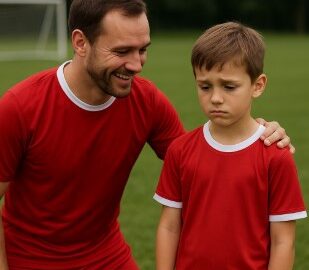
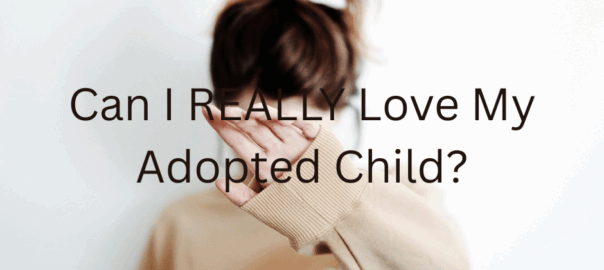
 1-2-1 Personalised Parent Support Sessions
1-2-1 Personalised Parent Support Sessions
 Safe Spaces Free From Judgement and Shame
Safe Spaces Free From Judgement and Shame Where No Problem Is Too Big and No Question To Small
Where No Problem Is Too Big and No Question To Small Offering Compassion and Understanding
Offering Compassion and Understanding From Real Parents Who Know How Difficult Being a Parent Can Be
From Real Parents Who Know How Difficult Being a Parent Can Be Real Lived Knowledge & Experience
Real Lived Knowledge & Experience Virtual Sessions Where You Are In Control
Virtual Sessions Where You Are In Control